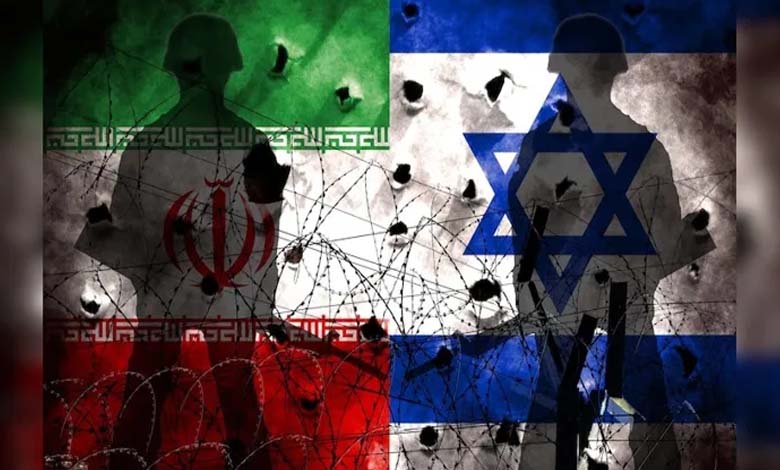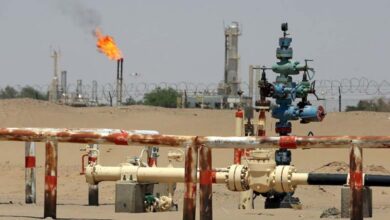Is an Attack Imminent? US Newspaper Reveals Israeli and Iranian Preparations

Tensions between Israel and Iran are escalating amid growing concerns of an imminent attack and regional escalation.
Israel appears to be preparing for a near-term strike against Iran.
The newspaper quoted unnamed U.S. and European officials who expressed concerns that such a move could further inflame tensions in the Middle East and jeopardize efforts by the Trump administration to reach a deal aimed at preventing Iran from developing a nuclear bomb.
-
“Surprise” in Israeli Attack on Iran: Advance Warning of Date and Targets?
-
Leaks Reveal Israeli Preparations to Strike Iran and U.S. Concerns
Fears over a potential Israeli military strike and an Iranian retaliatory response prompted the U.S. on Wednesday to withdraw its diplomats from Iraq and allow voluntary departures of American military families from the Middle East.
The exact scope of Israel’s potential military operation remains unclear. However, tensions have risen after months of Israeli Prime Minister Benjamin Netanyahu urging President Trump to act, claiming Iran is at a point of strategic vulnerability.
-
Details of Iran’s “Recruitment” of an Israeli and His Girlfriend to Carry Out an “Assassination” Operation
-
In Case of an Israeli Attack: Source Discusses Iran’s Plan and Target Bank
Trump’s Position on Iran
Trump had previously rejected an Israeli proposal to attack Iran, expressing his preference to pursue diplomatic negotiations that would curb Iran’s capacity to produce nuclear fuel.
Two weeks ago, Trump stated that he had warned Netanyahu not to launch any military action during ongoing U.S.-Iran negotiations.
The New York Times noted it remains unclear to what extent Trump has tried to block Netanyahu again this time.
Recently, Trump has shown less optimism about diplomatic solutions, especially after Iran’s Supreme Leader rejected a proposal that would have gradually limited Tehran’s uranium enrichment on its own soil.
-
Iran’s Secret Document Ignites a Dispute within the Israeli Military and Netanyahu’s Office
-
Israeli Army and Mossad Agree on Plans to Strike Iran
The U.S. decision to evacuate personnel, combined with a British warning about new threats to commercial shipping in the region, came shortly after Trump told the New York Post in a podcast published Wednesday that he was “less confident” about securing a deal to limit Iran’s nuclear weapons development.
These developments also come ahead of a sixth round of U.S.-Iran talks scheduled for next Sunday, despite Trump stating Monday that Iran’s negotiation stance was “unacceptable.”
As of Wednesday, Trump’s envoy to the negotiations, Steve Witkoff, was still expected to attend the upcoming talks in Oman, according to officials cited by the New York Times.
-
Israeli Movements to Confront Iranian Threat: Reservist Call-up and Communication Jamming
-
Trump Doubts.. Iran Threatens: Is the Nuclear Deal Doomed Before It Begins?
How Will Iran Respond to Israel?
In Tehran, senior government and military officials have convened to draft a response to a potential Israeli strike. A senior Iranian official told the New York Times that the response would be “immediate, involving the launch of hundreds of ballistic missiles toward Israel.”
He said that Iran “has prepared a plan for a massive counterattack using ballistic missiles.”
In October 2024, a major Iranian missile attack on Israel—linked to the Gaza conflict—caused limited damage, partly due to U.S. assistance in intercepting the projectiles.
On Monday, Trump spoke by phone with Netanyahu, but the White House disclosed few details about the conversation.
-
Nuclear Talks: Iran Rejects Washington’s Proposal, Prepares Alternative Offer
-
Nuclear Talks: Iran Rejects Washington’s Proposal and Prepares an Alternative
Iranian Defense Minister Aziz Naserzadeh issued a strong warning Wednesday, saying the U.S. would suffer “massive losses” if a military conflict erupted after negotiations failed.
Iranian officials also criticized comments by U.S. Central Command leader Gen. Michael E. Kurilla, who told Congress he had presented Trump with extensive options for attacking Iran.
Kurilla was scheduled to testify again Thursday before the Senate Armed Services Committee, but the session was canceled without explanation.
Iran’s mission to the United Nations described Kurilla’s remarks on social media as “aggressive military rhetoric” that fuels regional instability.
-
Iran’s Intelligence Minister to Soon Reveal Israel’s Hidden Treasure
-
In Response to Aoun.. Israeli Defense Minister Sets Condition to Halt Strikes on Lebanon
Vienna Vote Looms
These events are unfolding during the weekly meeting of the International Atomic Energy Agency’s (IAEA) Board of Governors in Vienna, where the U.S., U.K., France, and Germany have submitted a resolution condemning Iran for accelerating its nuclear program and “violating its commitments” under the 2015 nuclear deal.
The vote is expected Thursday. If passed, it could pave the way for the UN Security Council to reinstate harsh economic sanctions previously lifted under the agreement.
The deal was brokered by former U.S. President Barack Obama and unilaterally abandoned by Donald Trump in 2018.
Iranian Foreign Minister Abbas Araghchi warned via social media that the resolution would “force Iran to respond forcefully.”











